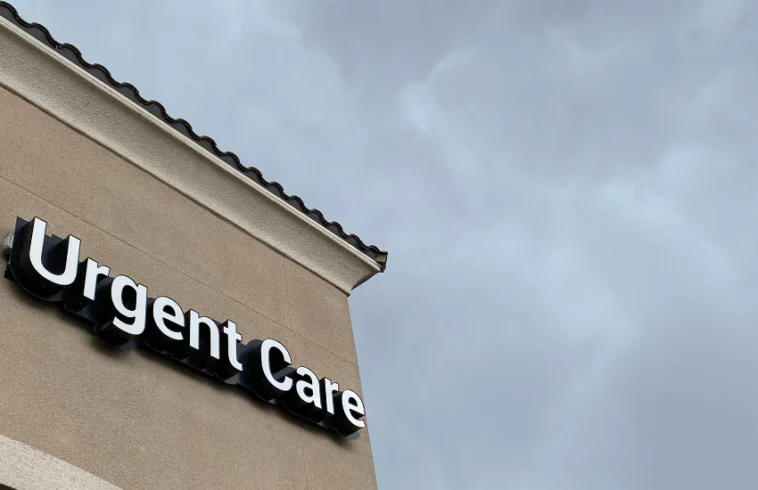Do you want to know what the cost of an urgent care visit without insurance? Here we tell you…
Navigating Healthcare Costs: Understanding Urgent Care Visit Costs Without Insurance
In the United States, the healthcare landscape is complex and ever-changing, with millions of individuals lacking health insurance coverage. For those without insurance, navigating the intricacies of medical expenses can be a daunting task. When faced with non-emergency medical needs, urgent care clinics often serve as a viable alternative to costly emergency room visits. However, understanding the cost of urgent care without insurance is crucial for making informed decisions about healthcare.
Understanding Urgent Care Costs Without Insurance
Factors Influencing Urgent Care Costs
The cost of an urgent care visit without insurance can vary significantly depending on several factors, including:
- Location: Urgent care costs tend to be higher in urban areas compared to rural areas.
- Provider: The specific urgent care center and the healthcare provider you see can impact the cost of your visit.
- Services Rendered: The type and number of services provided during your visit, such as examinations, diagnostic tests, and treatments, will directly affect the overall cost.
Average Cost of an Urgent Care Visit Without Insurance
On average, an urgent care visit without insurance can range from $150 to $350, depending on the factors mentioned above. A basic visit, typically involving a consultation with a healthcare provider, may cost around $150, while more complex visits involving diagnostic tests or treatments could cost upwards of $350.
Breakdown of Urgent Care Charges
The cost of an urgent care visit without insurance can be broken down into several components:
- Provider Fee: This charge covers the consultation with the healthcare provider.
- Facility Fee: This charge is levied for the use of the urgent care facility and its resources.
- Diagnostic Tests: Any laboratory tests or imaging studies performed during the visit will incur additional charges.
- Treatments: Medications, injections, or other treatments prescribed during the visit will be included in the overall cost.
Impact of Location and Provider on Urgent Care Costs
The location of the urgent care center and the specific provider you see can significantly impact the cost of your visit. Urgent care centers in urban areas typically charge higher rates than those in rural areas. Additionally, the experience and qualifications of the healthcare provider may also influence the cost of services.
Strategies for Managing Urgent Care Costs Without Insurance
Comparing Prices Before Choosing an Urgent Care Center
Before seeking urgent care, it is advisable to compare prices among different urgent care centers in your area. Many urgent care centers provide cost estimates on their websites or over the phone, allowing you to make an informed decision based on affordability.
Negotiating Payment Plans with Urgent Care Providers
For those unable to pay the full cost upfront, many urgent care centers are willing to negotiate payment plans. Discuss your financial situation with the provider or billing department to explore payment options that suit your needs.
Exploring Free or Reduced-Cost Urgent Care Options
Some community health centers and free clinics offer urgent care services at reduced or no cost to individuals with limited financial means. These organizations often provide care on a sliding scale based on income and household size.
Seeking Assistance from Community Health Centers and Free Clinics
In addition to urgent care centers, community health centers and free clinics offer a range of medical services, including urgent care, at significantly reduced or no cost to uninsured or low-income individuals. These organizations are often funded by government grants or private donations, enabling them to provide affordable healthcare for those in need.
Utilizing Telehealth Services for Non-Emergency Medical Needs
Telehealth services, which involve virtual consultations with healthcare providers via video or phone, can be a cost-effective alternative to in-person urgent care visits for non-emergency medical needs. Telehealth consultations can be particularly beneficial for individuals in rural areas with limited access to urgent care centers.
Preventive Measures for Minimizing Urgent Care Visits
While urgent care can be a valuable resource for non-emergency medical needs, taking proactive steps to prevent illnesses and injuries can help reduce the frequency of urgent care visits and associated costs.
Maintaining Regular Checkups and Immunizations
Regular checkups with a primary care physician can help identify and address potential health concerns early on, preventing them from escalating into more serious issues requiring urgent care. Additionally, keeping up with recommended immunizations can help prevent infectious diseases that may necessitate urgent care visits.
Adopting Healthy Lifestyle Habits
Adopting healthy lifestyle habits, such as maintaining a balanced diet, engaging in regular exercise, and getting adequate sleep, can significantly impact overall health and reduce the risk of illnesses and injuries that may require urgent care.
Addressing Chronic Conditions Proactively
Proactive management of chronic conditions, such as diabetes, heart disease, or asthma, can help prevent complications that may lead to urgent care visits. Working closely with a healthcare provider to manage chronic conditions can minimize the need for urgent care interventions.
Seeking Prompt Medical Attention for Minor Injuries and Illnesses
While it may seem counterintuitive, seeking prompt medical attention for minor injuries or illnesses can often prevent them from worsening and requiring urgent care. Early diagnosis and treatment of minor issues can help prevent complications and reduce the overall cost of healthcare.
Navigating the healthcare system without insurance can be challenging, particularly when facing non-emergency medical needs. Understanding the cost of urgent care visits without insurance is crucial for making informed decisions about healthcare. By comparing prices, negotiating payment plans, exploring free or reduced-cost options, and utilizing telehealth services, individuals can manage urgent care expenses effectively. Additionally, adopting preventive measures, such as maintaining regular checkups, adopting healthy lifestyle habits, and addressing chronic conditions proactively, can significantly reduce the frequency of urgent care visits and associated costs.
FAQs
- What are some ways to find out the cost of an urgent care visit without insurance?
- Contact the urgent care center directly and inquire about their pricing for uninsured patients.
- Check the urgent care center’s website, which often provides cost estimates or links to pricing information.
- Utilize online healthcare cost calculators to estimate the cost of urgent care services in your area.
- What are some tips for negotiating payment plans with urgent care providers?
- Be upfront about your financial situation and explain your inability to pay the full cost upfront.
- Propose a payment plan that fits your budget and timeframe.
- Be willing to negotiate with the provider or billing department to reach a mutually agreeable arrangement.
- Are there any free or reduced-cost urgent care options available?
- Yes, community health centers and free clinics often offer urgent care services at reduced or no cost to uninsured or low-income individuals.
- Search online or contact your local health department for a list of community health centers and free clinics in your area.
- Eligibility for these services is typically based on income and household size.
- What are the benefits of preventive care in reducing urgent care visits?
- Preventive care can identify and address potential health concerns early on, preventing them from escalating into more serious issues requiring urgent care.
- Regular checkups and immunizations can help prevent illnesses and injuries, reducing the need for urgent care visits.
- Proactive management of chronic conditions can minimize complications and prevent urgent care interventions.
- How can I advocate for affordable and accessible healthcare?
- Contact your elected representatives and express your support for policies that expand access to affordable healthcare.
- Join or support organizations that advocate for healthcare reform and universal healthcare coverage.
- Participate in public hearings and discussions on healthcare policy initiatives.
- Educate others about the importance of affordable and accessible healthcare.
We recommended you



